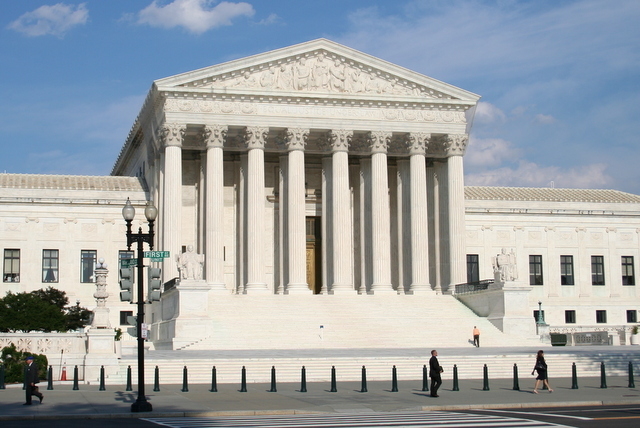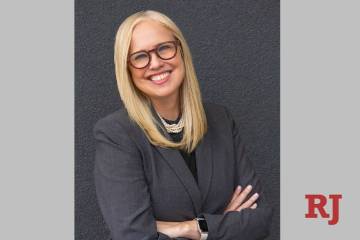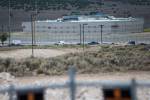Two cases, two arguments, one principle
Consistency may be the hobgoblin of little minds, but a Supreme Court case centering on whether a Muslim prisoner in Arkansas may grow a beard in accordance with his religious beliefs is pointing up an odd double standard on the part of President Barack Obama’s administration.
First, administration lawyers argued the Religious Freedom Restoration Act should be read to require the religious owners of two closely held corporations, Hobby Lobby Stores, Inc. and Conestoga Wood Specialties, Corp., to provide 20 forms of FDA-approved contraception to female employees. The owners sued, claiming four of the 20 methods of contraception constituted abortion, which is against their religious beliefs. They had no objection to the other 16.
The Supreme Court held that the RFRA wouldn’t permit the requirement (a regulation promulgated pursuant to the Affordable Care Act) and struck down the administration’s arguments. (The ruling was flawed, but ultimately, the problem lies with the RFRA itself.)
But now, the same Obama administration is arguing almost the opposite position in an Arkansas case, Holt v. Hobbs. In that case, prisoner Gregory Houston Holt, who says he is a devout Muslim, is suing the Arkansas Department of Corrections, saying a prison grooming policy that prohibits beards violates his religious beliefs. He’s suing under a companion law to the RFRA, the Religious Land Use and Institutionalized Persons Act of 2000.
Like the RFRA, the Religious Land Use and Institutionalized Persons Act of 2000 prohibits the government from imposing a “substantial burden” on the religious exercise of a person incarcerated in prison, unless it can demonstrate a compelling government interest and that the burden on religious freedom is the “least restrictive means” of achieving that interest.
Arkansas prison authorities maintain they have good reasons for prohibiting beards: Prisoners may conceal weapons or other items (a cell phone SIM card, for example) in a beard; if a prisoner manages to escape, he might quickly change his appearance by shaving; prisoners may become targets of violence by other inmates because of their religion, or because other inmates perceive they are getting special treatment from prison staff. The state’s arguments were accepted by a U.S. District Court judge and the 8th District Court of Appeals.
Now, one might expect an administration that didn’t believe a Christian-owned company could refuse to provide insurance coverage for contraception that some consider to be equivalent to abortion would similarly come down on the side of the government here. Instead, the administration argues the opposite point, saying Holt should be able to grow a beard because the state failed to show a prohibition on beards is the least restrictive means of achieving its stated interests.
My own view — notwithstanding RFRA and the Religious Land Use and Institutionalized Persons Act of 2000 — is that if you want to exercise your full First Amendment rights, don’t commit crimes and be sent to prison. If you do, and the state has the power to take away your liberty and other rights, it most certainly has the right to prescribe a uniform appearance.
In any case, the Obama administration ought to be required to explain why it took one position in Burwell v. Hobby Lobby and is taking an entirely different position in Holt v. Hobbs, although the principle at issue is essentially the same. Do people’s sincerely held religious beliefs allow them to disregard generally applicable laws, and even prison regulations? Or would that, in the words of Justice Antonin Scalia in the pre-RFRA case of Employment Division v. Smith, create chaos? Said Scalia:
“Any society adopting such a system would be courting anarchy, but that danger increases in direct proportion to the society’s diversity of religious beliefs, and its determination to coerce or suppress none of them. Precisely because ‘we are a cosmopolitan nation made up of people of almost every conceivable religious preference,’ and precisely because we value and protect that religious divergence, we cannot afford the luxury of deeming presumptively invalid, as applied to the religious objector, every regulation of conduct that does not protect an interest of the highest order. The rule respondents favor would open the prospect of constitutionally required religious exemptions from civic obligations of almost every conceivable kind — ranging from compulsory military service, to the payment of taxes, to health and safety regulation such as manslaughter and child neglect laws, compulsory vaccination laws, drug laws, and traffic laws, to social welfare legislation such as minimum wage laws, child labor laws, animal cruelty laws, environmental protection laws, and laws providing for equality of opportunity for the races. The First Amendment’s protection of religious liberty does not require this.” (citations omittted)
This was the perfectly reasonable balance that the RFRA upset in 1993, and that the Religious Land Use and Institutionalized Persons Act of 2000 extended to the states. It led directly to the ruling in the Hobby Lobby case, and the full breadth of its mischief has yet to be realized. That’s a good reason why, if Congress is serious about fixing these problems for good, it should repeal RFRA and RLUIPA as swiftly as possible.
I’ll not be holding my breath, however.






















